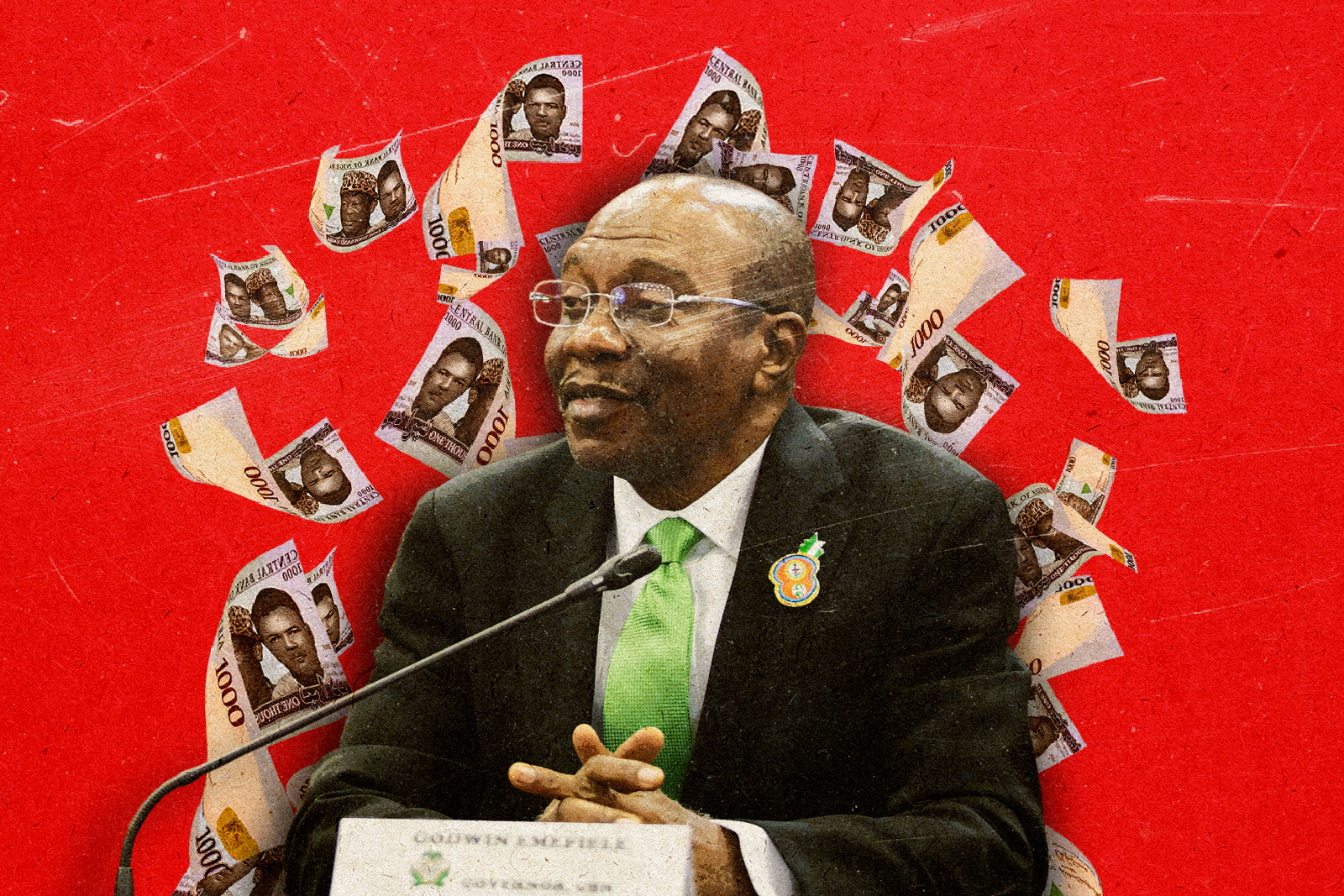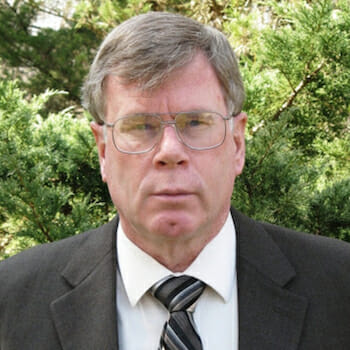
Is a Banker Purposely Meddling with Nigerian Elections?
Nigeria is suffering a self-inflicted crisis. It began when the country’s central bank released new banknotes in December to replace those in circulation. The kicker is not enough banknotes have been printed. But with a deadline fast approaching to retire the old notes, there is a severe shortage of cash.
The hasty policy has left ordinary Nigerians unable to buy basic necessities and forced the closure of businesses across the country– in scenes reminiscent of India’s botched banknote demonetisation in 2016. Unlike India, Nigeria’s banknote crisis comes just weeks before a crucial presidential election in Africa’s largest democracy and the crisis cannot help but affect the outcome.
“It’s crazy and crumbling economic activities. Some shops are closed. We are having to pay more to withdraw both the old and new notes. I do transfers for almost everything I buy these days. The new notes are still scarce,” Arinze Gideon, a Nigerian journalist, said regarding the lack of available banknotes.
The reasoning for the policy is well-intentioned. The currency swap would stem corruption, curb inflation, and rein in counterfeiting. Dirty money would be removed from circulation, whilst legitimate funds would be brought into the formal financial sector. A cashless society beckoned. But the timing and implementation are dubious. Questions have been raised about whether Godwin Emefiele, Nigeria’s central bank governor, is playing political games to influence the presidential election.
This crisis should concern Washington. In December, the first U.S.-Africa summit since the Obama administration was held to great fanfare. The message: Washington was ready to compete with China to become the continent’s partner of choice. Biden has also made democracy a central pillar of his foreign policy, with a second summit due to take place in March. So, when a banker paralyses Africa’s largest economy to potentially swing the election of its largest democracy, alarm bells should be ringing.
Emefiele has said “short-term hiccups will be inevitably experienced” in the implementation of his policy. This makes a mockery of the plight facing Nigerians who were already struggling to buy food and other necessities. Interminable queues now snake around ATMs as people desperately try to withdraw their own money. Some residents have even resorted to storming banks. If market traders accept the old currency, it comes with a massive premium – driving the inflation the new notes were supposed to curb. Meanwhile, rural families have undertaken lengthy journeys to exchange their life savings, only to be told there are no new notes available.
Bola Tinubu, the presidential candidate for the governing All Progressives Congress (APC), will suffer politically the longer the policy forces suffering on Nigerians. And that seems to be the point. There is little love lost between Tinubu and Emefiele. Tinubu has been openly critical of the central bank – particularly the dual exchange rate where select businesses can obtain foreign exchange at lower rates, whilst the rest can only access a higher market-driven rate. The confusing system has deterred investment, reduced the real value of the naira, and encouraged profiteering from arbitrage. Emefiele knows he will be out of a job should Tinubu win.
Moreover, Emefiele is resentful of not obtaining the presidential ticket for the APC – the party of Muhammadu Buhari, the current president. His bid garnered widespread controversy in Nigeria, given his political appointment as governor barred him from contesting for political office. The courts eventually ruled against him. But Emefiele’s foray into party politics deepened widespread scepticism about his independence in carrying out his apolitical role.
However, Tinubu’s main electoral rival from the opposition People’s Democratic Party (PDP) has backed the governor’s currency disaster. Six-time presidential candidate Atiku Abubakar has warned against extending the deadline to exchange the notes. He argues the new naira regime will curb vote-buying before the election if slush money is redundant – despite his decade-long ban from entering the U.S. for graft and alleged hacking of the Electoral Commission during the 2019 election. But his motives may not be so noble.
Rumours have spread that Emefiele is secretly funding the Abubakar campaign to secure his tenure. These rumours were lent credence when a whistleblower disclosed that PDP party stalwarts had smuggled over $100 million in new naira notes in special utility vans from the bank over three days. A central bank governor buying his position may read beyond parody. But the joke will be lost on ordinary Nigerians who can no longer buy food.
The currency spanner thrown into the electoral works is lamentable. Nigeria has made a lot of progress in consolidating its democracy since its return in 1999 after a period of military rule. In 2015, the first transfer of power from an incumbent to a challenger at the ballot box occurred – a litmus test for any developing democracy.
However, it also faces significant challenges. A recent surge in attacks on the electoral commission’s offices bodes ill for election day. From Boko Haram attacks in the north of the country, a secessionist movement in the southeast, and widespread banditry and kidnapping for ransom, a pervasive sense of insecurity threatens turnout. The last thing Nigeria needs is another crisis before the election. As desperation spills over, crime and insecurity will only further deteriorate.
Godwin Emefiele is playing political games with ordinary people’s lives. Western partners and its electoral observers must be wary of this threat to Nigeria’s democracy.

